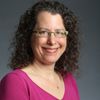A national campaign aimed at countering negative perceptions of Islam has put up four billboards in Seattle. Changing public perceptions may be a tough job, in the face of the Chattanooga shooting and fears about proselytizing.
After the terrorist attack on the satirical Parisian newspaper Charlie Hebdo in January, the Islamic Circle of North America made a decision.
Since 9/11, the longstanding New York-based group, which promotes Islamic values through education and outreach, has been grappling with how to dispel negative images of Muslims and communicate their faith to society at large, according to organization president Naeem Baig. It launched a “Why Islam?” project, which disseminates information according to themes picked every year. This year, the theme was intended to center on faith and service, Baig said.
But, he explained, the Charlie Hebdo attack seemed to call for a new focus. “We felt these two people did not represent our faith,” Baig said of the shooters. The group wanted to reiterate that the Islamic Prophet Muhammad preached “kindness and generosity” in the face of animosity — not violence.
The result is the organization’s largest campaign to date. It will ultimately feature 100 billboards in cities across the country — including four in the Seattle area unveiled in early July — that proclaim Islam a religion of peace.
Most Read Local Stories
And then came Thursday’s slaying in Chattanooga, Tenn., of four Marines by a 24-year-old Muslim gunman.
“It just makes it more relevant and important,” Baig said of the campaign. “American Muslims must take a stand against all of these atrocities.” Speaking by phone from New Jersey, he had just come from a prayer marking the end of Ramadan — normally a joyous time, but on this day framed by a moment of silence to express condolences for those killed in Tennessee.
Although the motive for the shooting is not known, it still may add to the already considerable hurdles faced by the billboard campaign, including possible concerns about proselytizing.
“Muhammad always taught: ‘Love Not Hate; Peace Not Violence,’ ” declares one of the billboards, which in this area are located on Lake City Way Northeast, Martin Luther King Jr. Way South, Aurora Avenue North and Pacific Highway South. Another billboard proclaims, “Muhammad believed in Peace, Social Justice, Womens Rights.”
The billboards cite a toll-free number and website where people can get more information about Islam. Some — including one that proclaims Islam to be “the message of Abraham, Moses, Jesus & Muhammad” — also indicate that a free Quran is available for the asking.
Baig said his group is merely trying to provide positive, accurate information and not proselytize. Some people may get a different idea, however.
Todd Green, who teaches religious history at Luther College in Iowa and has just come out with a book, “The Fear of Islam,” said he assumes the billboards are at least in part trying to stimulate interest in Islam, and he sees nothing wrong with that. Christians similarly proselytize, he points out.
And Mormons and atheists have both run billboard campaigns in recent years trying to negate stereotypes and present positive images of who they are and what they believe.
Nevertheless, Muslims face particular obstacles in the era of al-Qaida and Islamic State group terrorism. Green points to a March survey by The Huffington Post and YouGov showing that 55 percent of Americans have a somewhat or very unfavorable opinion of Islam. The billboards, he said, might “reinforce the idea that Islam is trying to take over.”
“Any organization is free to proselytize, of course, but as consumers of information we should be clear-eyed about what we are getting,” said Asra Nomani, a prominent Muslim feminist and former Wall Street Journal reporter who advocates for reform within the religion. She takes issue with what she called the “ultraconservative interpretation of Islam” promoted on the website advertised by the billboards, which says that homosexuality is condemned by God, calls premarital sex a grave sin and describes the hijab, or headscarf, as an integral part of Muslim life.
Negative impressions of Islam, ultraconservative or otherwise, exist in the Northwest, too. Faheem Khan, a Bellevue software engineer and president of the local branch of the Islamic Circle of North America, recalls how at a recent fair in Redmond, a child wandered over to a booth set up by his group. Volunteers staffing the booth, Khan said, asked the boy what he knew about Islam. His response was brief, but to those at the booth, troubling: “Something bad.”
The Rev. Joe Fuiten, of the Cedar Park Church in Bothell, put it more strongly. “War is a characteristic, not a stereotype, of Islam,” said the evangelical Christian pastor, who cites Muslim involvement in many current wars.
The Islamic Circle of North America is not the only group trying to fight such sentiments. In the last few months, the Northwest chapter of Pacifica Institute, a group founded by Turkish Americans to promote cross-cultural understanding, held a couple of public events to which it invited Muslim leaders and scholars to speak out against violent extremism.
“Extremism has nothing to do with Islam,” Kubra Eskigun, a special-education teacher and Pacifica member, said at one of the events, a May panel discussion put on in Redmond.
She and other panel members didn’t discuss specific extremist acts, though, just as the Islamic Circle’s billboards only subtly allude to violence that has occurred.
“We are taking a positive tone,” Baig said, noting that his group has directly condemned terrorism in previous statements. One, for instance, called the Charlie Hebdo attack a “cowardly and ghastly act.” The group issued another statement Thursday declaring the Chattanooga shooting a “senseless outrage that threatens the safety of all of us.”
The billboard campaign started this spring in other cities and, so far, Baig said he’s pleased with the response. Since March, he said, a New Jersey call center staffed by volunteers ready to handle inquiries about Islam has received 1,000 calls.
